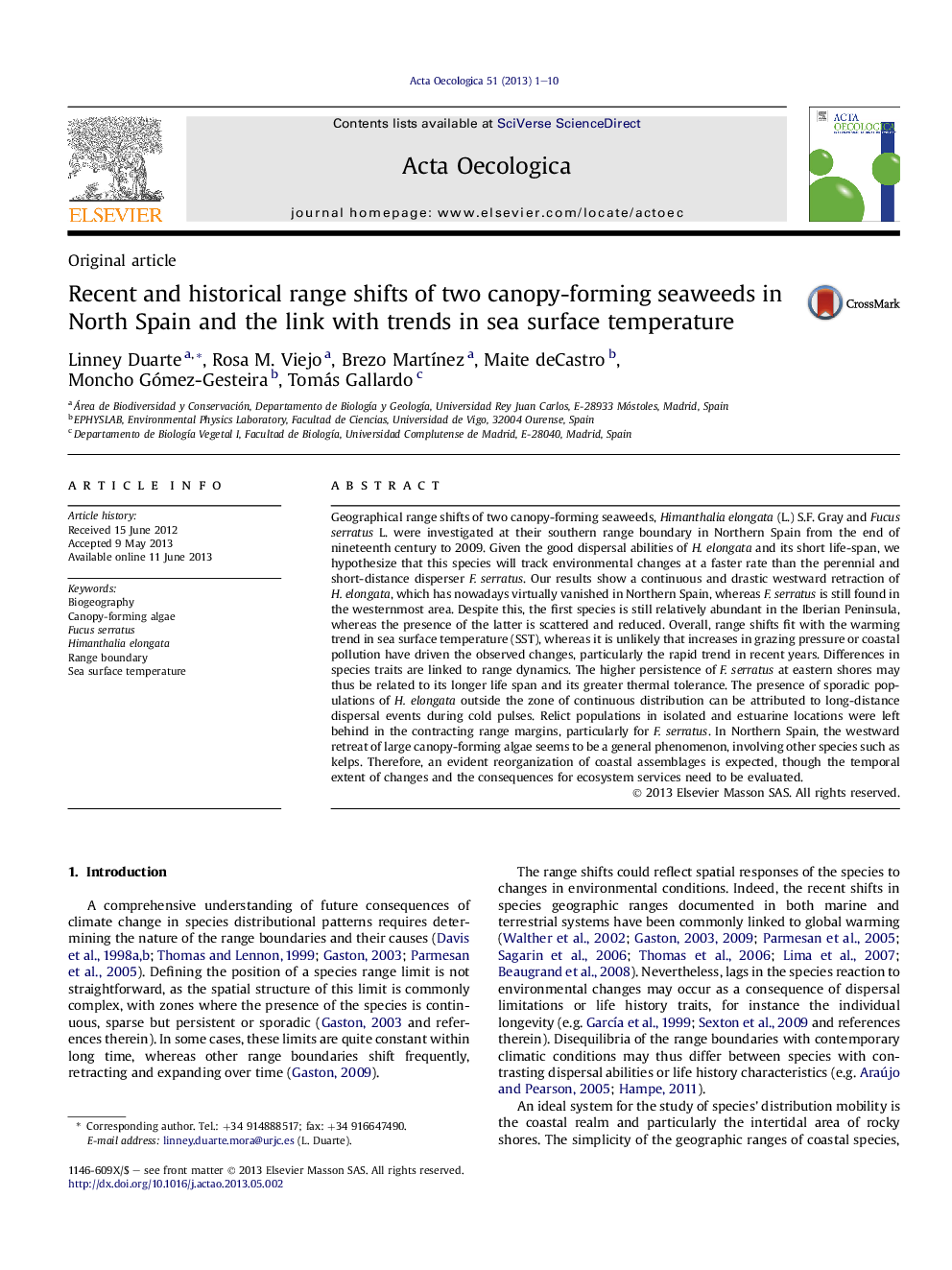| کد مقاله | کد نشریه | سال انتشار | مقاله انگلیسی | نسخه تمام متن |
|---|---|---|---|---|
| 4380778 | 1617720 | 2013 | 10 صفحه PDF | دانلود رایگان |
عنوان انگلیسی مقاله ISI
Recent and historical range shifts of two canopy-forming seaweeds in North Spain and the link with trends in sea surface temperature
دانلود مقاله + سفارش ترجمه
دانلود مقاله ISI انگلیسی
رایگان برای ایرانیان
کلمات کلیدی
موضوعات مرتبط
علوم زیستی و بیوفناوری
علوم کشاورزی و بیولوژیک
بوم شناسی، تکامل، رفتار و سامانه شناسی
پیش نمایش صفحه اول مقاله

چکیده انگلیسی
Geographical range shifts of two canopy-forming seaweeds, Himanthalia elongata (L.) S.F. Gray and Fucus serratus L. were investigated at their southern range boundary in Northern Spain from the end of nineteenth century to 2009. Given the good dispersal abilities of H. elongata and its short life-span, we hypothesize that this species will track environmental changes at a faster rate than the perennial and short-distance disperser F. serratus. Our results show a continuous and drastic westward retraction of H. elongata, which has nowadays virtually vanished in Northern Spain, whereas F. serratus is still found in the westernmost area. Despite this, the first species is still relatively abundant in the Iberian Peninsula, whereas the presence of the latter is scattered and reduced. Overall, range shifts fit with the warming trend in sea surface temperature (SST), whereas it is unlikely that increases in grazing pressure or coastal pollution have driven the observed changes, particularly the rapid trend in recent years. Differences in species traits are linked to range dynamics. The higher persistence of F. serratus at eastern shores may thus be related to its longer life span and its greater thermal tolerance. The presence of sporadic populations of H. elongata outside the zone of continuous distribution can be attributed to long-distance dispersal events during cold pulses. Relict populations in isolated and estuarine locations were left behind in the contracting range margins, particularly for F. serratus. In Northern Spain, the westward retreat of large canopy-forming algae seems to be a general phenomenon, involving other species such as kelps. Therefore, an evident reorganization of coastal assemblages is expected, though the temporal extent of changes and the consequences for ecosystem services need to be evaluated.
ناشر
Database: Elsevier - ScienceDirect (ساینس دایرکت)
Journal: Acta Oecologica - Volume 51, August 2013, Pages 1-10
Journal: Acta Oecologica - Volume 51, August 2013, Pages 1-10
نویسندگان
Linney Duarte, Rosa M. Viejo, Brezo MartÃnez, Maite deCastro, Moncho Gómez-Gesteira, Tomás Gallardo,